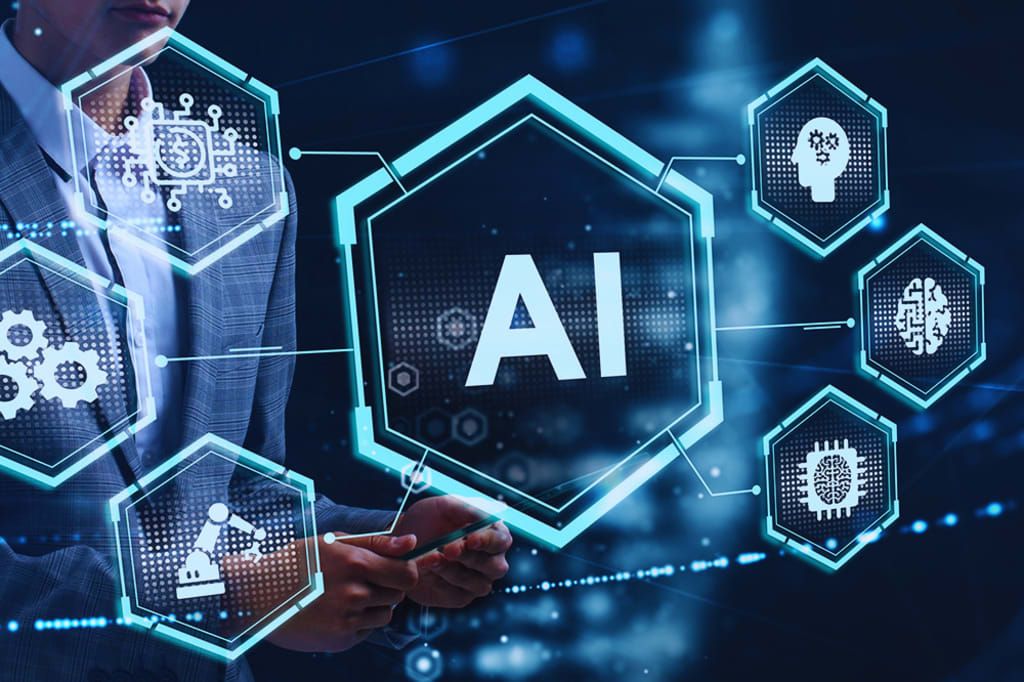
Artificial Intelligence (AI) refers to the creation of intelligent machines that can perform tasks that typically require human intelligence, such as understanding natural language, recognizing objects, and solving complex problems. AI encompasses a broad range of technologies, including machine learning, deep learning, natural language processing, robotics, and computer vision, among others.
Machine learning is a subset of AI that involves training algorithms to learn from data and make predictions or decisions without being explicitly programmed to do so. Deep learning is a type of machine learning that uses neural networks to analyze vast amounts of data and learn complex patterns. Natural language processing allows computers to understand and generate human language, while computer vision enables machines to interpret visual information from images or videos.
AI has numerous applications in various fields, such as healthcare, finance, transportation, and entertainment. It has the potential to transform industries, improve efficiency, and enhance human life. However, it also raises ethical concerns and challenges, such as data privacy, bias, and job displacement.
Artificial Intelligence (AI) has a wide range of applications in various industries, and it is transforming the way we live and work. Some of the most prominent applications of AI are:
Healthcare: AI is being used in the healthcare industry to diagnose diseases, develop treatment plans, and personalize patient care. AI-powered systems are also used to analyze medical records and predict potential health problems.
Finance: AI is being used in the finance industry for fraud detection, risk assessment, and portfolio management. AI-powered chatbots are also used to provide customer support and answer queries.
Retail: AI is being used in the retail industry for personalized shopping experiences, inventory management, and supply chain optimization. AI-powered chatbots are also used to provide customer support and answer queries.
Transportation: AI is being used in the transportation industry for route optimization, autonomous vehicles, and traffic management. AI-powered systems are also used to predict maintenance needs and prevent accidents.
Education: AI is being used in the education industry for personalized learning experiences, adaptive testing, and student engagement. AI-powered chatbots are also used to provide student support and answer queries.
Artificial Intelligence (AI) has several advantages, including:
Increased efficiency: AI systems can automate tasks, streamline processes, and reduce the time and effort required to complete complex tasks.
Improved accuracy: AI systems can perform tasks with greater accuracy and consistency than humans, reducing the risk of errors and increasing the reliability of results.
Enhanced decision-making: AI systems can analyze vast amounts of data quickly and accurately, providing insights that can improve decision-making in a variety of industries.
Personalization: AI systems can analyze user data to personalize products, services, and experiences, increasing customer satisfaction and loyalty.
Cost savings: AI systems can automate tasks and reduce the need for human labor, resulting in cost savings for businesses.
Improved safety: AI systems can be used to identify potential safety hazards and prevent accidents, improving overall safety in various industries.
Predictive analytics: AI systems can analyze historical data to identify patterns and trends, allowing businesses to make more accurate predictions about future events.
Scalability: AI systems can be scaled up or down as needed, allowing businesses to adjust to changes in demand without the need for significant investment.
Overall, AI has the potential to improve efficiency, accuracy, decision-making, personalization, safety, and cost savings, making it a valuable tool in a wide range of industries.
While AI has many advantages, there are also some potential disadvantages to consider:
Job displacement: AI has the potential to automate many jobs that are currently done by humans, which could lead to job displacement and unemployment.
Bias and discrimination: AI systems are only as unbiased as the data they are trained on, and if that data is biased or discriminatory, the AI system will be too.
Lack of empathy: AI lacks the ability to understand emotions and human nuances, which can make it difficult for it to handle situations that require empathy or sensitivity.
Privacy concerns: AI often relies on collecting and analyzing large amounts of personal data, which can raise privacy concerns and potential misuse of data.
Security risks: AI can be vulnerable to cyber attacks and can be used to create sophisticated attacks.
Dependence on technology: Our reliance on AI technology may lead to a reduction in human skills and decision-making abilities, which can have negative consequences.
Cost: Developing and implementing AI systems can be expensive, which can limit access to these technologies for smaller organizations and countries.
Overall, while AI has the potential to revolutionize many aspects of our lives, it is important to consider the potential disadvantages and work to mitigate them.
Regenerate response





Comments
There are no comments for this story
Be the first to respond and start the conversation.